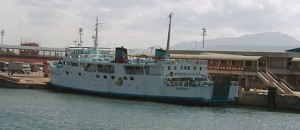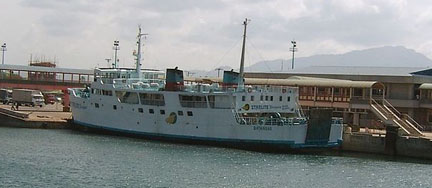 The Philippine National Economic and Development Authority (NEDA) has identified safety, overlapping and conflicting functions of transport and concerned agencies, and the threat made by the European Union to ban Filipino seafarers serving EU-flag ships as the three key maritime issues the Philippine government needs to address in the medium term.
The Philippine National Economic and Development Authority (NEDA) has identified safety, overlapping and conflicting functions of transport and concerned agencies, and the threat made by the European Union to ban Filipino seafarers serving EU-flag ships as the three key maritime issues the Philippine government needs to address in the medium term.
“To address the challenges, the (Philippine Development Plan or PDP) targets to ensure transport safety and security through regular upgrading and updating of safety and security standards to keep with international standards and practices,” NEDA assistant director general Dr. Ruperto Majuca said at a recent maritime conference, adding that government will also “observe strict implementation of these safety and security standards as well as the ratification of maritime safety and security-related conventions.”
In addition, Majuca said the PDP “aims to ensure an integrated and coordinated transport network by improving the country’s roll-on roll-off (ro-ro) terminal system. We will also enhance our interisland logistics and undertake studies on the domestic shipping industry to identify concrete measures to lower interisland shipping costs.
“We will ensure that there will be fair competition with the intervention of the maritime regulator in accordance with the Domestic Shipping Development Act and we will also pursue efforts to improve performance and efficiency in our port operations.”
The PDP will likewise explore Association of Southeast Asian Nations’ connectivity through sea linkages. A study on the development of existing ro-ro ports to accommodate international ro-ro ships as well as the regulatory framework necessary to promote such service is now under way.
Independent regulator eyed
To address overlapping and conflicting functions of transport and other concerned agencies, the government will establish a separate and independent regulator with jurisdiction over all airports, ports or railways, Macuja said.
Aside from transport interconnectivity through infrastructure development, the government will provide support to the shipbuilding industry by increasing investments by P93 billion by 2014 with the aim of making the Philippines the fourth largest shipbuilding nation in the world in the next five to 10 years.
As for the EU threat to ban Philippine seafarers, the government will provide support to seafarers who comprise 24% of the total number of overseas Filipino workers. Initially, the Commission on Higher Education has intensified inspection of maritime schools that has resulted in the clamp down of some fly-by-night institutions.
The Technical Education and Skills Development Authority also revamped technical assessment of maritime schools and proposed the creation of a single pool of assessors and seafarers.
Aside from these strategies, other PDP policy directions include encouragement of investments in the development and expansion of logistics infrastructure catering to the international market; promotion of ports outside Metro Manila; review and development of reform policies and rules, such as customs practices, transshipment of cargoes in various modes, and foreign shipping services along the entire multimodal transportation chain; exploration of public-private partnership financing for post-harvest services projects such as handling and port or transport facilities.
Restructuring of ports, upgrading their quality and capacity and improving performance and efficiency of port operations; installation of international maritime security standards through the adoption of the International Ship and Port Facility Security Code and Vessel Traffic Management Systems in other major ports in the country; application of “user-pays” principle to preserve maritime assets; and adoption of a comprehensive long-term National Transport Policy.





